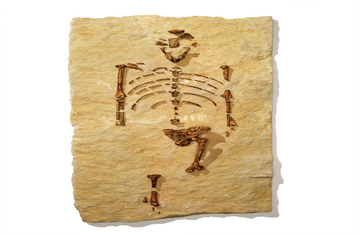
The Seattle Post-Intelligencer
By TOM PAULSON
P-I REPORTER
It is fitting that one of the most signature discoveries of humankind — a finding that has helped define a big part of our prehistory — would take place in one of the most unusual and historic places on the planet.
As the ancient fossil known as Lucy indicates, that portion of northern East Africa we now call Ethiopia may well have been the cradle of humanity. The oldest known fossils of modern humans, dated at 190,000 years old, have been found there along with the remains of chimplike ancestors who preceded Lucy by more than 2.5 million years.
But Ethiopia’s contributions certainly didn’t stop with possibly launching human evolution that eventually spread these inquisitive and creative hairless apes all over the place to ultimately build skyscrapers, fly airplanes and try to drive a car while talking on a cell phone.
As the exhibit at the Pacific Science Center emphasizes, Ethiopia has continued to play a significant — if often unrecognized — role in the global and cultural affairs of Homo sapiens up to the present.
Ethiopia is mentioned in the Bible many times — beginning with the book of Genesis, as Cush or Abyssinia, as perhaps the home of King Solomon’s Queen of Sheba and even of one of Moses’ wives. It is the only African country that successfully fought off European colonization, except for a brief occupation by Mussolini’s forces during World War II. It has long been a spiritual home for strong traditional communities of Christians, Muslims, Jews and even (symbolically, at least) for the cannabis-celebrating Rastafari movement, named after the precoronation name of Ethiopia’s last emperor, Haile Selassie, who was deposed the same year, 1974, that Lucy was discovered.
And, especially for Seattle residents, it is important to mention that ninth century Ethiopia also gave us coffee.
“But all anyone ever thinks about when you mention Ethiopia is famine,” chuckled Ezra Teshome, a leading figure in Seattle’s large Ethiopian community who moved here from Addis Ababa in 1971. “We’re hoping that Lucy coming here will provide an opportunity for people to learn more about the rich culture and history of the place.” Read More.

























